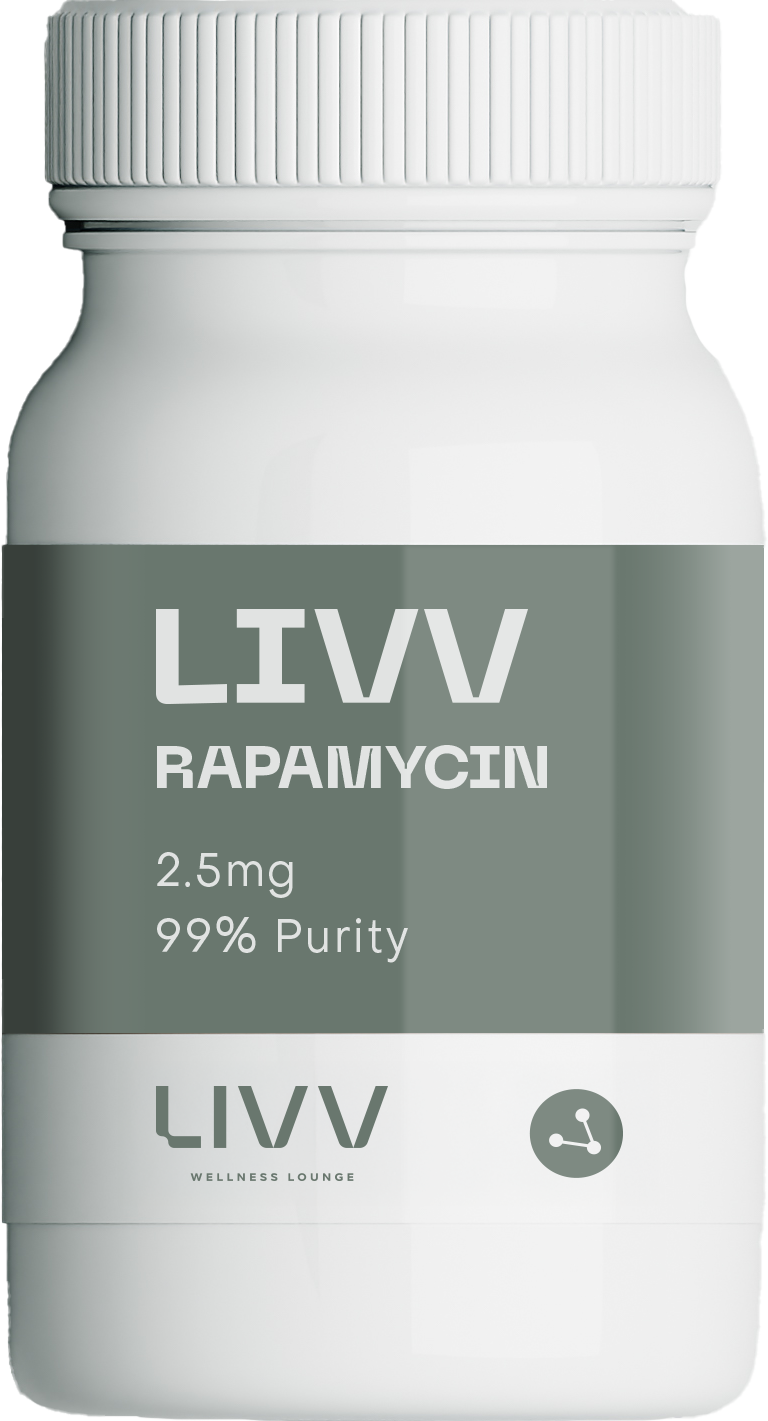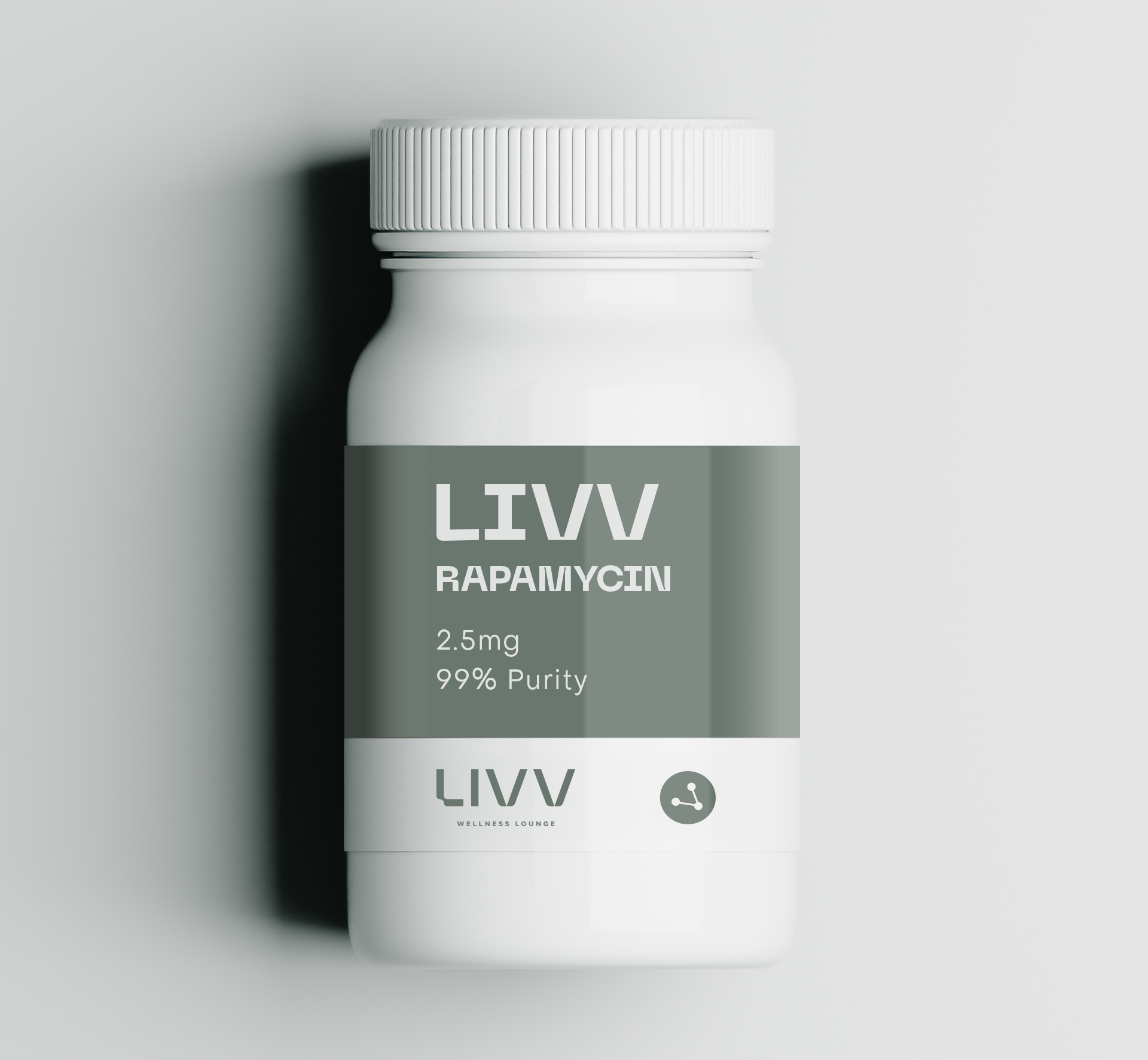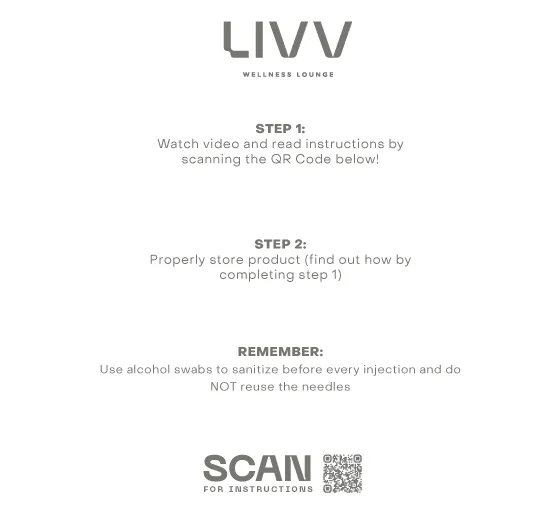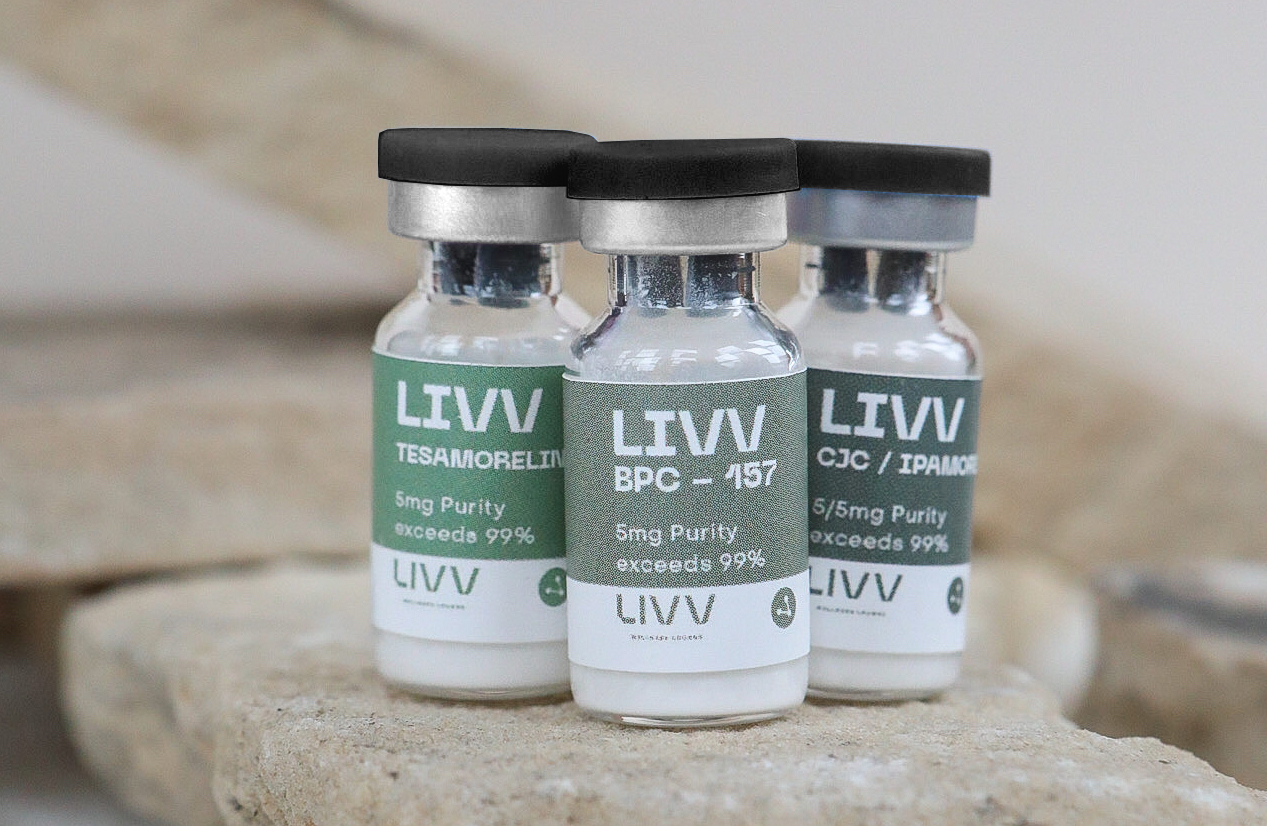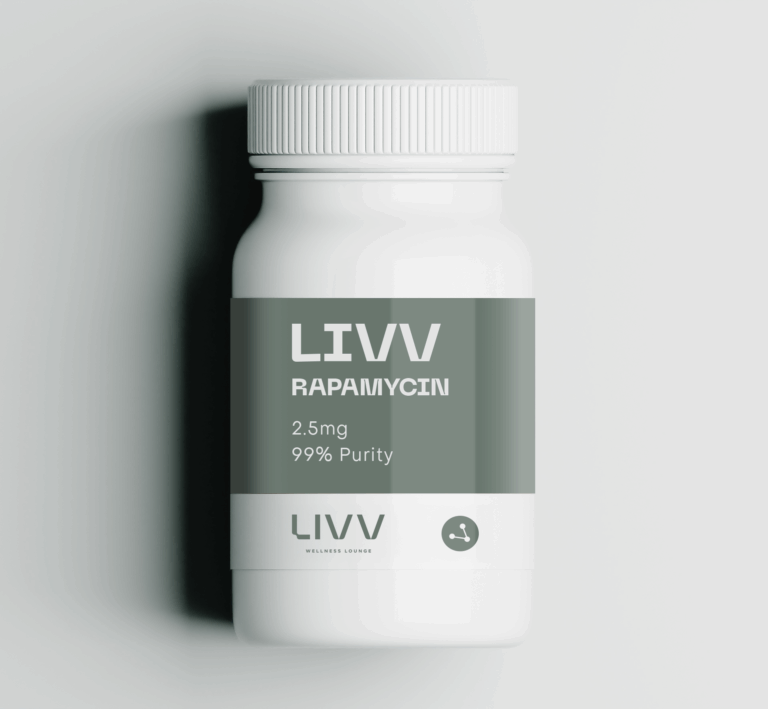Rapamycin Capsules
Price range: $290.50 through $415.00
Supports cellular repair and longevity pathways
May help reduce inflammation
Supports metabolic health
Rapamycin is a powerful compound known for its potential anti-aging and longevity benefits. It works by inhibiting the mTOR pathway, a key regulator of cell growth and metabolism, which helps promote cellular repair and reduce inflammation. Rapamycin has also been studied for its ability to support immune function, improve metabolic health, and extend lifespan by mimicking the effects of caloric restriction.



1 capsule daily. 30 capsules included.
GENERAL CONSIDERATIONS
Medical Consultation:
Always consult with a healthcare provider or medical professional before starting any peptide-based treatment. They can assess your specific health needs, potential interactions, and contraindications.
Allergies and Sensitivities:
Some individuals may be allergic or sensitive to specific peptides or ingredients in peptide formulations. If you have known allergies or sensitivities, inform your healthcare provider before starting any treatment.
Drug Interactions:
Peptides may interact with certain medications. It’s important to discuss all medications, supplements, and treatments you are currently taking with your healthcare provider to identify potential interactions.
Dosage and Administration:
Follow the recommended dosage and administration instructions provided by your healthcare provider or the manufacturer. Avoid self-dosing or altering dosages without professional guidance.
Contraindications:
Some peptides may have contraindications for certain medical conditions. Your healthcare provider can help determine if a specific peptide is safe for your condition.
Pregnancy and Breastfeeding:
If you are pregnant, planning to become pregnant, or breastfeeding, consult with a healthcare provider before using any peptides. Safety during pregnancy and breastfeeding may vary.
Potential Side Effects:
Be aware of potential side effects associated with specific peptides. While many peptides are considered safe, side effects can occur, and it’s important to discuss any unusual symptoms with your healthcare provider.
Quality and Source:
Ensure that the peptides you use are obtained from reputable sources and are of high quality. Quality control is crucial to minimize risks.
Monitoring:
Depending on the peptide and its intended use, your healthcare provider may recommend regular monitoring of certain health parameters, such as hormone levels or blood markers.
Long-Term Effects:
The long-term effects of some peptides may not be well understood, so it’s important to discuss your treatment goals and duration with your healthcare provider.
Compliance:
Adhere to the recommended treatment plan and schedule provided by your healthcare provider. Skipping doses or discontinuing treatment prematurely may affect the desired outcomes.
Individual Response:
Peptides can have variable effects from person to person. Be patient and realistic about the expected results, and communicate regularly with your healthcare provider about your progress.
Remember that peptides are a relatively new area of research and clinical use, and the understanding of their safety and efficacy is continually evolving. Consulting with a knowledgeable healthcare provider who is experienced with peptide therapies is essential for making informed decisions about their use.
ALL ARTICLES AND PRODUCT INFORMATION PROVIDED ON THIS WEBSITE ARE FOR INFORMATIONAL AND EDUCATIONAL PURPOSES ONLY.
The products offered on this website are not medicines or drugs and have not been approved by the FDA to prevent, treat or cure any medical condition, ailment or disease.
Rapamycin is widely recognized for its ability to inhibit the mTOR (mechanistic target of rapamycin) pathway, which is involved in cell growth, metabolism, and aging. In lower, intermittent doses, it has shown potential to increase lifespan in animal models and may help reduce age-related diseases such as cancer, cardiovascular disease, and cognitive decline. In its FDA-approved form, it is used to prevent organ rejection by suppressing the immune system.
Rapamycin was first discovered as an antifungal compound and later developed as an immunosuppressant for organ transplants. Groundbreaking research by the National Institute on Aging demonstrated that Rapamycin could significantly extend lifespan in mice—even when treatment began late in life.
More recent studies suggest that intermittent, low-dose Rapamycin may delay or prevent age-related conditions by promoting autophagy (cellular cleanup), reducing inflammation, and improving immune function. Human trials are ongoing, particularly in the context of aging, Alzheimer’s disease, and cancer. However, long-term safety in healthy individuals remains under investigation.
WHAT’S IT USED FOR?
Rapamycin is primarily used to prevent organ transplant rejection. Off-label, it is used in longevity and anti-aging research for its ability to inhibit the mTOR pathway, which is linked to cellular aging, inflammation, and age-related disease progression.
What’s Inside Rapamycin
Rapamycin gives you the following benefits:



